- Home
- Iain Rob Wright
I is for Ice (A-Z of Horror Book 9)
I is for Ice (A-Z of Horror Book 9) Read online
BOOK SUMMARY
Imagine waking up surrounded by ice. Imagine finding yourself alone with a stranger who controls what you do and where you go. That is the reality for Peter.
He remembers nothing of his old life and nothing of the man named Faraday. All Peter has is questions, and he might not like the answers.
“Civilization is like a thin layer of ice upon a deep ocean of chaos and darkness.”
– Werner Herzog
“That wasn’t any act of God. That was an act of pure human fuckery.”
– Stephen King, The Stand
-1 -
Peter’s consciousness awoke slowly from a dream already forgotten. There was no sound, no smell.
Only cold.
He tried to open his eyes, but couldn’t. Something sealed them shut.
“Your eyelids are frozen,” came a soothing voice. “Just stay calm and everything will be okay.”
So cold.
Peter did not shiver for this was no ordinary chill. He felt it inside his body. Ice seemed to flow through his veins.
But slowly, gradually, he felt the cold slip away, replaced by a pulsing warmth.
“There we go,” came the soothing voice again. “We’re almost there. Almost back in the land of the living.”
Peter tried to speak, but his throat was frozen solid, so instead he tried to concentrate on opening his eyes. His lids stung as he yanked them apart, but he persevered until there was a tiny ripping sound.
And then there was light.
“Glad to have you back, Peter,” said the man standing in front of him. He looked like some kind of doctor, grey-haired and wearing a clean white coat.
“W-who are…?”
“Try not to speak just yet. Let’s get you stabilised and then I will explain everything. You’ve been asleep, but I’ve woken you up.”
“S-sleep?”
“Yes, Peter. You’ve been asleep for a long time.”
***
Peter chose to remain quiet while the other man continued whatever it was he needed to do. He poked and prodded at Peter, examined the readouts being spat from a multitude of machines.
He was definitely some kind of doctor or scientist. They seemed to be inside some kind of clinical warehouse. White-tiled walls and fluorescent lights.
Once he could move again, Peter realised he was inside some kind of glass coffin, lined with ice like the inside of an old freezer.
He had been frozen.
And now he had been defrosted.
The doctor gave him a glass of deep blue liquid and told him to drink it. It was explained to him that it contained ingredients that would keep his vitals steady, his heart beating in rhythm. Peter was too confused to do anything other than exactly as he was told, so he drank the liquid down in one gulp. He felt much better a few moments later.
He was naked so the doctor handed him some clothes and took him into an elevator. Then they headed into an office, which was where they were now.
“My name is Dr Faraday,” the man explained, pouring Peter a glass of water from a pitcher on the desk. “Your name is Peter.”
Peter frowned. “I know my name.”
Faraday smiled. “That’s wonderful. Do you remember anything else?”
Peter laughed at the stupid question, but when he tried to answer, he realised something. “I can’t remember anything. I…I don’t know a thing other than my name.”
Faraday remained calm, like he had expected no different.
Peter rubbed at his throat, which ached slightly. What the hell was going on? Where was he?
“Memory loss is to be expected,” Faraday explained. “Just remembering your name is a triumph.”
“Where am I?” Peter asked.
“Seattle. Just outside the city, to be exact.”
“Seattle? Am I from here?”
“Yes, you’re a pathologist at this facility. You study viruses.”
“I what?”
Faraday smiled. “It will come back to you in time. You are a brilliant scientist, Peter, and I woke you up so that you could help me with my work.”
“Woke me up? What the hell is happening here? Why did I wake up in a block of ice, and where is everybody else?”
“There is nobody else,” Faraday said bluntly. “At least, not here. It’s just me, I’m afraid. My work here is the most important thing in the world. I mean that quite literally. I woke you up to help me.”
“Woke me up from what?”
“Cryo sleep.”
Peter was surprised to find himself laughing. “Cryo sleep. Like something out of a science fiction novel? A Walt Disney urban legend?”
Faraday chuckled. “Cryostasis was a pipe dream when Walt Disney was alive. It wasn’t perfected until 2028 by a man named Einstein. Not the 20th century Einstein, just a coincidence. Although the two did look remarkably similar in life.”
“He’s dead now?”
“I would think so. It’s 2056. I was only a young man when Einstein perfected cryostasis. Yet his work has served me now in bringing you back.”
“Why was I in…cryostasis?”
“Because the alternative was dying like everybody else.”
Peter swallowed. He looked out the office window at the empty corridors outside. “What happened to everybody else?”
“The HBsAG11 virus. The media eventually named it the Final Flu but it’s actually more related to hepatitis than influenza. It attacks the liver, swells it until a person’s insides rupture. The early onset presents as flu, so the confusion is understandable.”
Peter felt sick, dizzy. Whether it was the aftereffects of the cryostasis or just pure horror, he didn’t know. “I…don’t remember any of what you’re saying.”
“No, I suspect you don’t, but you were one of the many scientists who opted for a long sleep. The plan was for you all to wake up a hundred years from now when the virus’s reservoirs will have dried up and humanity might have a chance of starting again. In the meantime, some of us were to remain here working on a cure that could be left for the people waking up in the future. I believe I am close to that cure. There are still people dying in the world – not many, but some. If I can find a way to beat the virus, I can rescue what’s left of humanity and wake up those currently sleeping. We can start again right now, before too much is lost to us. In a hundred years time, our technology will have rusted to scrap and our fuel reserves will have degraded. If we recover now there is still a chance to revive our world as it was. Waiting a hundred years to start again will set humanity back five hundred.”
Peter didn’t reply. He just sat there in silence, holding his glass of water in his lap and staring at Faraday in utter bewilderment.
“I understand it is a lot to take in,” Faraday admitted.
“That’s an understatement. What…what am I supposed to help you with? I don’t know anything about viruses. At least, if I do, I don’t remember any of it.”
“You will. In the meantime, you can provide company and keep an old man from losing his mind. You can be my lab assistant, if nothing else for the time being.”
Peter nodded silently.
Faraday stood up from his desk and exhaled. “I understand you are still in shock. I think you need something visual to jolt you truly awake. Come with me.”
“Where are we going?”
“To show you what is left of the world, and why I need your help so badly.”
-2-
“This is the last news report before the BBC went offline,” Faraday explained. “By then they were only broadcasting via the Internet. The television services went down months before the end.”
Peter took a seat in the a
rmchair inside the facility’s rec room in front of a wall-mounted television screen. He watched the video with absolute interest.
“Good evening world,” said an ashen-skinned newscaster before a great big desk. “This is our final broadcast before we go off the air indefinitely. The American network, NBC, has pledged to continue reporting via podcast, but for us here in London it is farewell. We hope one day to return.
Over the last three years the world’s population has dwindled from nine billion to around four hundred million. The streets of major cities lie in ruins, buried beneath mountains of our dead. Rescue centres remain operational in some areas but more and more close each day. The best advice now is to gather whatever supplies you have and take comfort in whatever it is you believe in. Gather your loved ones close and pray that this is not mankind’s extinction. The Final Flu has culled humanity to the brink, but infection rates have plummeted now that the viral bridges are broken. There are no longer enough of us left to allow this evil to destroy us without effort. Now that humanity is sparse enough, the virus can no longer jump from person to person with ease. As we die, so does it. Stay away from your neighbours, keep to your family units, and humanity may just rise again. Find comfort in the fact that the CDC and World Health Organisation are still operational. If there is a cure, they will find it. Stay safe and stay healthy. This is the BBC’s final broadcast. The year is 2042. Good night Britain, and goodbye world.”
Faraday stood behind Peter and touched him on the shoulder. “I’m sorry.”
“It’s all gone?” Peter asked, wondering if this was all some kind of sick joke. “Everyone is dead?”
“Not everyone, but enough people that I haven’t seen a soul outside this building for years.”
“What is this place? What was I doing here asleep?”
“This is the Mettulus Institute for Advanced Science. You were a scientist here, Peter. One of several dozen. One of the things studied here was cryogenics. When it was clear that the virus was at our doors, the staff here decided to put themselves on ice. I and three other researchers remained behind to continue working for a cure. That was thirteen years ago now.”
“Where are they now, the three others that stayed behind with you?”
“Dead. Six years ago we were finally forced to go out and forage for supplies. I stayed behind while they went to check out a nearby shipping warehouse. Out there, they became infected with the virus. They never made it back inside this building. They knew they couldn’t endanger my work here so they stayed away. Their bodies are out there somewhere. That has always troubled me.”
“Why did you stay behind?”
“Somebody had to, and it was my work so it was the logical choice that it be me who stayed at the facility.”
“Your work? Weren’t you a team?”
“To a certain extent, but it is I who was in charge. Everything we have towards a cure is down to my research.”
“But you’ve hit a brick wall?”
“Far from it. I just need some assistance, that’s all. We can talk about that when you are more orientated. For now you can relax and come to term with things.”
“Am I the first person you’ve woken up?”
Faraday hesitated, but he eventually nodded. “Yes.”
Peter wanted to ask more questions, but his mind was a blank sheet. He wished he could remember who he was, but saw nothing beyond waking up in a block of ice.
“I’m tired,” was all he could manage to say.
“Of course. I have a room made up for you. I’ll take you there now.”
“Thank you.”
***
Peter barely slept, and when he did he had the strangest dreams. Dreams that suggested nothing of viruses, extinction events, or careers in science. He vaguely recalled a woman, but whether it was a wife, a sister, or his mother was unclear by the time he awoke.
The room was dark, truly dark. No electronics existed in the sparse, yet comfortable room and the view through the window revealed nothing but a moonless sky. It truly did feel like the end of the world. It was summed up most by the utter silence.
Shortly before dawn, Peter decided not to chase sleep any longer so got up and put on the clothes Faraday had told him were inside the closet. There was lots to choose from but he settled on a pair of jeans and a black t-shirt. It was warm in the facility, even at night. The windows did not open.
He knew to find Faraday in Lab 1 where the man both worked and slept. It was the largest area on the floor and the hub of the doctor’s search for a cure. All this, Peter had learned before being left alone to rest last night by his host. He still could not understand why he had been woken up when no one else had. Perhaps it came down to supplies. Maybe Faraday could only spare enough for one other person and had picked Peter. But why?
And was the world really dead?
Had he really been asleep for the last few years?
It was insane.
He didn’t want to disturb Faraday so he went the opposite way down the hallway. It led him back to the rec room where he had watched the BBC report. He found and switched on a lamp and blinked against the light. Then he wondered how the building had power if the world had ended. Did the facility have its own generator? It must.
There was a sink at the back of the room, but when Peter tried the taps he got nothing. He searched the room’s fridge and found a shelf full of bottled water. He took a few sips from one and then returned it, wondering how much water Faraday had stockpiled. It rained a lot in Seattle, but that still didn’t make gathering water easy.
He sat down on the sofa beside the lamp and did nothing. He was still so much in shock that time seemed to pass by even without being occupied. He had no watch and saw no clocks, so he just sat there until the sun began to rise outside the window. Once it had, he looked outside.
The building was situated in open grounds long overgrown. Cracked pathways peeked out from beneath thickets of weeds and grass. A statue of a globe stood between two tall oak trees and an empty road led off into the distance. It was hard to see the horizon for there were so many trees in the way, but Peter thought he could see a neighbourhood about a mile away. Brown brick buildings all in a row.
Were there really no people left out there?
“It’s beautiful, isn’t it?”
Peter turned around to see Faraday entering into the room. “I’m sorry?”
“The wilderness out there. The world has been paved over, but slowly nature is taking it all back. One thing I don’t miss is all the car parks humanity put everywhere. There is something instinctually comforting about the colour green.”
“Do you ever go out?”
Faraday shook his head. “Not since I lost the others.”
“How do you get food and water?”
“We have plenty to eat here. Before my colleagues died, they looted that shipping warehouse and delivered its contents here so that I could continue my work. Enough canned food to last for years. They were true heroes, Peter. Brave men and women. Water is not an issue either as long as it’s rationed. There’s a water collection unit on the roof. So long as we don’t have a sudden drought we’ll be fine.”
It all made sense so Peter nodded. “You have power too.”
“Yes, of course. Most facilities such as this have solar arrays. There is too much at stake to be jeopardised by a temperamental power grid, even before things went bad. The two of us will be able to sustain ourselves comfortably for a good while yet. The facility has everything we need. Speaking of which, I bought you this.”
Peter looked at the cup of blue liquid in Faraday’s hand and raised an eyebrow. “The same stuff you gave me yesterday when I woke up? What’s in it?”
“Your vitals will still be unsteady. You need a statin, electrolytes, vitamins. This is a concoction necessary for a person waking from cryo sleep.”
Peter took the cup and looked into it, sloshing the thin blue liquid around. “How long do I need to take this for?”
“For at least the next ten days. Then we’ll check you over and see where you go from there.”
“Am I in danger?” Peter asked.
“Not if you drink that. Heart attacks are a problem when coming out of the frost. For some reason the human heart does not wake up as well as the rest of the body.”
Peter sighed, then drank down the contents of the cup.
Faraday was smiling. “There you go. Here, let me take that for you. If you are feeling rested, I will show you what we are doing here.”
***
Peter joined Faraday at a containment unit, one of those glass boxes with the rubber gloves hanging inside.
“Inside this glovebox is the end of the world,” Faraday explained. “A live strain of the HBsAG11 virus.”
Peter held his breath. Only air appeared to be inside the glass box, but hidden somewhere inside it was a deadly killer. Had he really devoted his previous life to studying viruses? The fear in his bones right now made him wonder how he had ever possessed the nerve.
“There’s no way the virus can get out?” he asked.
Faraday chuckled. “Of course there is, Peter, but not if we do our jobs correctly. Don’t worry, I’ve been working on this little monster for more than a decade and it hasn’t gotten me yet.”
“What do you want me to do?”
“How are you at making coffee?”
Peter smiled, not offended but relieved that his task would be so mundane – so safe. Once he got his memory back, perhaps he would be of more use.
So he made the coffee and kept Faraday company while the man worked. It was all so alien to Peter. The instruments, the computer readouts, the science talk. He didn’t know an electron microscope from a gene gun, but Faraday spoke about it all as if Peter should understand. Peter was eager to learn. He wanted it all to come back to him so that he could help. So he paid close attention.
Each day, beginning at dawn, he would meet Faraday in the lab and drink the blue liquid. Then they would check over the results from experiments left to run overnight. They regularly tested the cure on rats, which meant that they would often start the day by disposing of infected corpses. Some rats lasted longer than others, which provided leads to follow, but presently all rats tested eventually died. The virus was still undefeated, only ever hampered at best.

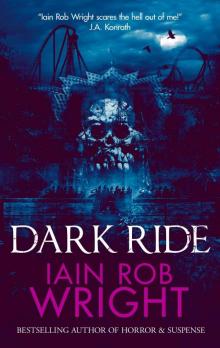 Dark Ride
Dark Ride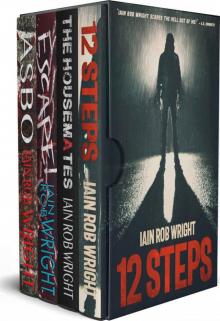 Gripping Thrillers
Gripping Thrillers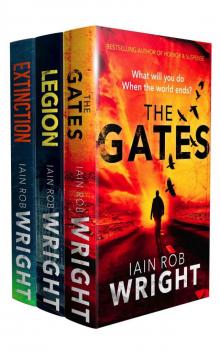 Hell on Earth Trilogy: The Complete Apocalyptic Saga
Hell on Earth Trilogy: The Complete Apocalyptic Saga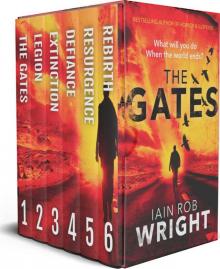 Hell on Earth- the Complete Series Box Set
Hell on Earth- the Complete Series Box Set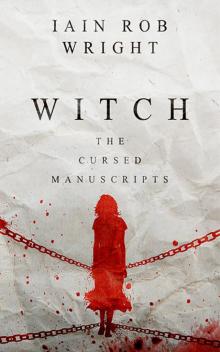 Witch: A Horror Novel (The Cursed Manuscripts)
Witch: A Horror Novel (The Cursed Manuscripts)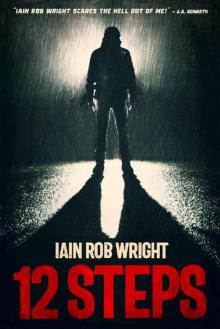 12 Steps
12 Steps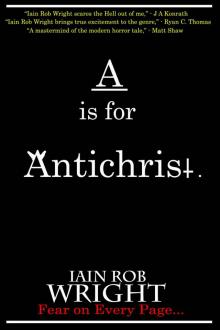 A is for Antichrist
A is for Antichrist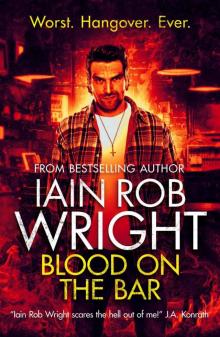 Blood on the Bar
Blood on the Bar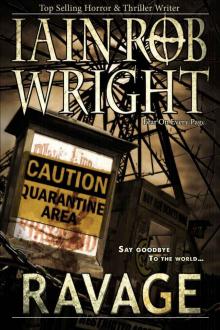 Ravage: An Apocalyptic Horror Novel
Ravage: An Apocalyptic Horror Novel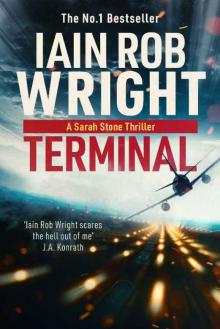 Terminal (Major Crimes Unit Book 4)
Terminal (Major Crimes Unit Book 4)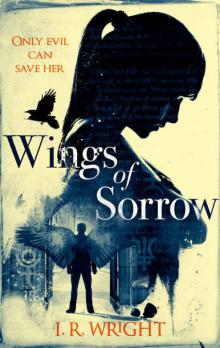 Wings of Sorrow (A horror fantasy novel)
Wings of Sorrow (A horror fantasy novel)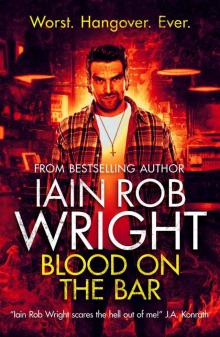 Blood on the Bar (Lucas the Atoner Book 1)
Blood on the Bar (Lucas the Atoner Book 1)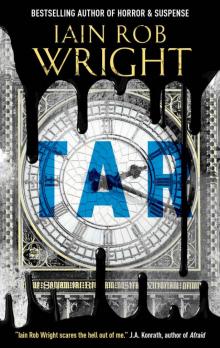 Tar: An apocalyptic horror novella
Tar: An apocalyptic horror novella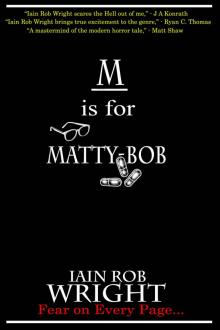 M is for Matty-Bob (A-Z of Horror Book 13)
M is for Matty-Bob (A-Z of Horror Book 13)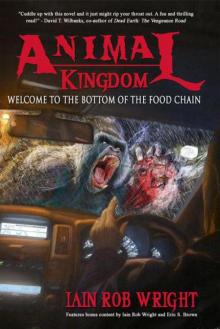 Animal Kingdom
Animal Kingdom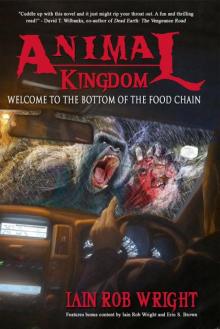 Animal Kingdom: An Apocalyptic Horror Novel
Animal Kingdom: An Apocalyptic Horror Novel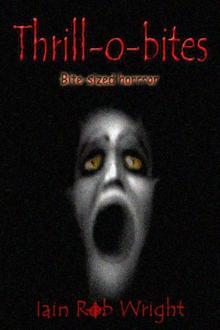 Thrillobytes: bite-sized horror
Thrillobytes: bite-sized horror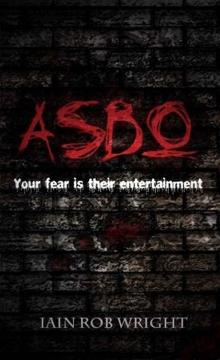 ASBO: A Thriller Novel
ASBO: A Thriller Novel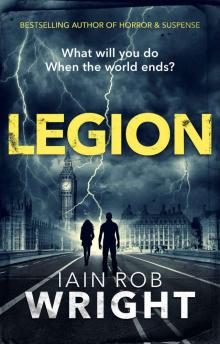 Legion: An Apocalyptic Horror Novel (Hell on Earth Book 2)
Legion: An Apocalyptic Horror Novel (Hell on Earth Book 2)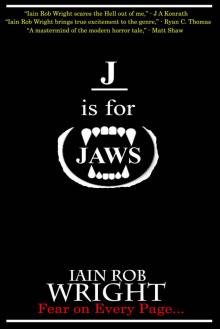 J is for Jaws (A-Z of Horror Book 10)
J is for Jaws (A-Z of Horror Book 10)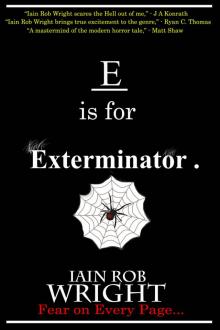 E is for Exterminator (A-Z of Horror Book 5)
E is for Exterminator (A-Z of Horror Book 5)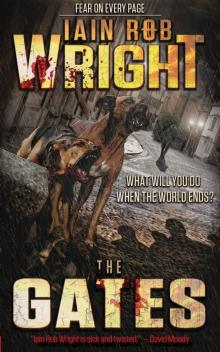 The Gates: An Apocalyptic Novel
The Gates: An Apocalyptic Novel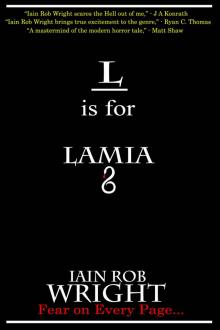 L is for Lamia (A-Z of Horror Book 12)
L is for Lamia (A-Z of Horror Book 12)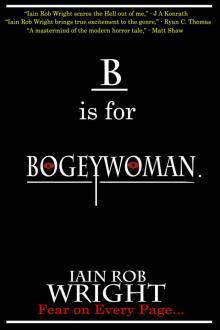 B is for Bogeywoman (A-Z of Horror Book 2)
B is for Bogeywoman (A-Z of Horror Book 2)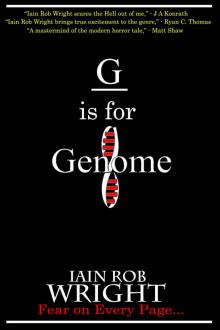 G is for Genome (A-Z of Horror Book 7)
G is for Genome (A-Z of Horror Book 7)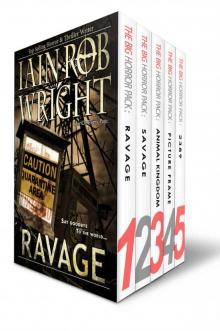 The BIG Horror Pack 2
The BIG Horror Pack 2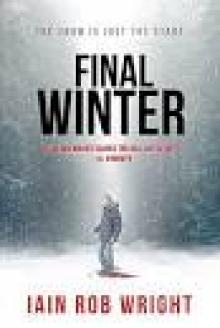 The Final Winter: An Apocalyptic Horror Novel
The Final Winter: An Apocalyptic Horror Novel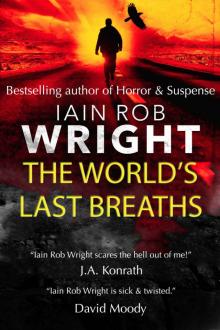 The World's Last Breaths: Final Winter, Animal Kingdom, and The Peeling
The World's Last Breaths: Final Winter, Animal Kingdom, and The Peeling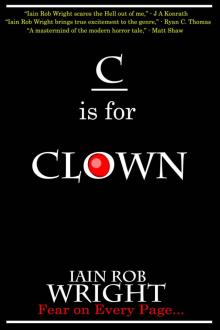 C is for Clown (A-Z of Horror Book 3)
C is for Clown (A-Z of Horror Book 3)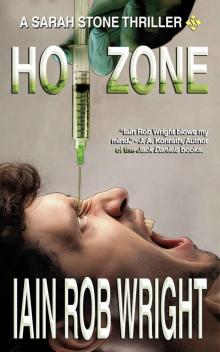 Hot Zone (Major Crimes Unit Book 2)
Hot Zone (Major Crimes Unit Book 2)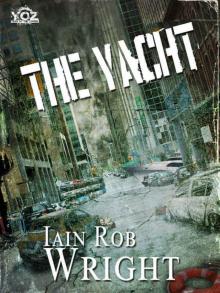 The Yacht (Year of the Zombie Book 3)
The Yacht (Year of the Zombie Book 3)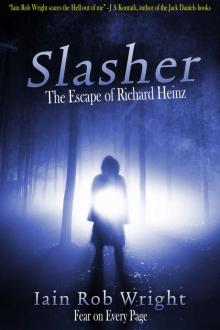 Slasher: the Escape of Richard Heinz
Slasher: the Escape of Richard Heinz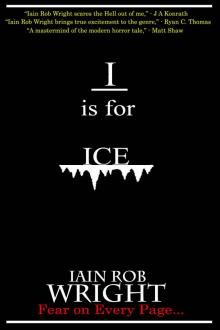 I is for Ice (A-Z of Horror Book 9)
I is for Ice (A-Z of Horror Book 9)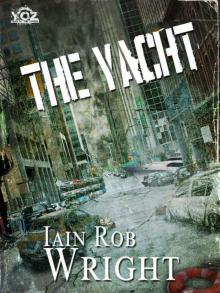 Year of the Zombie (Book 3): The Yacht
Year of the Zombie (Book 3): The Yacht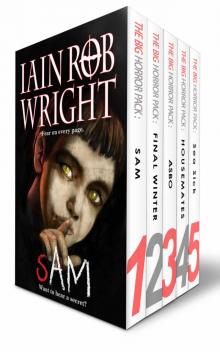 The BIG Horror Pack 1
The BIG Horror Pack 1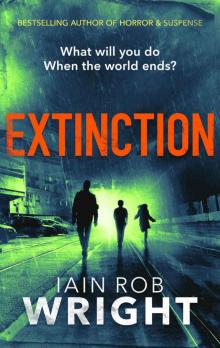 Extinction: An Apocalyptic Horror Novel (Hell on Earth Book 3)
Extinction: An Apocalyptic Horror Novel (Hell on Earth Book 3)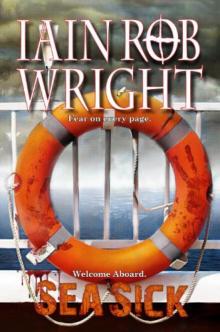 Sea Sick: A Horror Novel
Sea Sick: A Horror Novel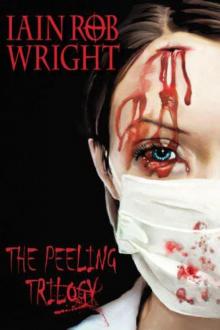 The Peeling Trilogy
The Peeling Trilogy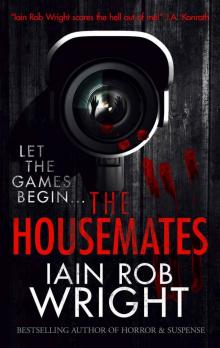 The Housemates: A Novel of Extreme Terror
The Housemates: A Novel of Extreme Terror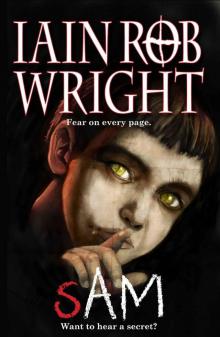 Sam
Sam